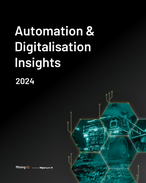This article is 13 years old. Images might not display.
In a presentation to the Melbourne Mining Club, Boyce said Australia’s federal and state government had to take a holistic approach to promoting the resource sector’s competitiveness and ensuring Australia was positioned to take full advantage of its opportunities.
His call echoes that of BHP Billiton CEO Marius Kloppers who told the company’s annual general meeting that governments had to play their part to restore cost competitiveness in the mining sector.
Kloppers said BHP had taken decisive and proactive action to ensure its businesses remained at the lower end of the cost curve, including closing higher cost operations.
“However, the reality is that we cannot do this heavy lifting on competitiveness alone,” he said.
Boyce said a national commission, comprising representatives from federal and state governments along with the private sector, should be created to develop a 30-year plan to promote Australia’s resource sector competitiveness.
“In the coal sector we undertake ‘life of mine’ planning – and we in Australia also need to adopt the same long-term approach to protecting the sustainability of the mining sector,” he said.
“Federal and state governments have assumed that plugging budget holes by placing additional tax burdens on the resource sector would not affect its competitiveness but a steady stream of news on industry cutbacks has shown clearly that this is not the case.
“Extreme policies threaten to undermine Australia’s role as a global resources leader,” Boyce said.
“One of the immediate goals of a national commission should be to re-evaluate the carbon tax, the MRRT [Minerals Resource Rent Tax] and state royalties and assess their collective impact on the sector.”
Boyce said with competitors emerging, Australia faced a stiff opportunity cost for failing to stay competitive.
“Five years ago countries like Mozambique weren’t part of the global coking coal conversation,” he said.
“Despite current market headwinds, the long-term fundamentals for coal remain strong and Australia has both the national endowment and the geographical advantage needed to serve Asia’s high-growth demand centres – so long as we don’t ignore the global laws of economic returns.”
Boyce said he first worked in Australia more than 20 years ago and had witnessed, first-hand, the coal sector’s extraordinary growth.
Since he joined Peabody in 2003, the company had been one of the fastest growing coal companies in Australia with major acquisitions in 2004, 2006, 2011 and multiple mine expansions.
























